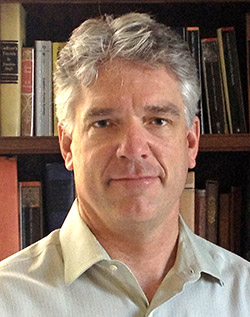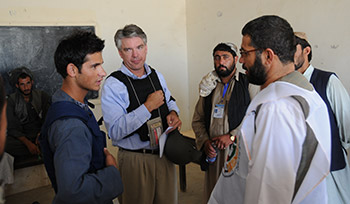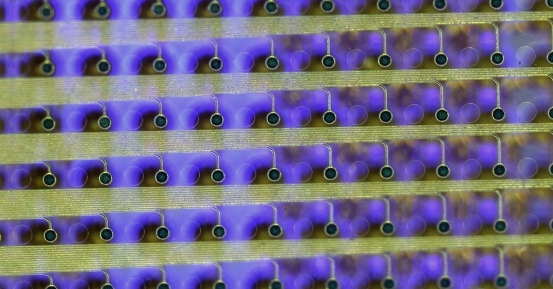
By:
- Inga Kiderra
Published Date
By:
- Inga Kiderra
Share This:
Citizen Monitor: Recruiting Voters to Improve Their Own Democracies

Clark Gibson
Can a text message get a person to the polls? What about an online social network – can a posting there persuade a voter to report back on what they observe during an election? Maybe they’d even be willing to snap and share a picture of a precinct’s public tally? These are among the questions that a team headed by UC San Diego political scientist Clark Gibson will be seeking to answer during the 2014 national elections in South Africa, thanks to a $1.38 million Stage 2 Development Innovation Ventures (DIV) grant from the United States Agency for International Development.
The team will be running randomized controlled experiments during the campaign and on Election Day itself to see if, and how, information and communications technology can be used to enhance citizen participation. They will also be seeking, through crowdsourcing, to transform regular citizens into election monitors.
They hope that as many as 200,000 South Africans will participate in the trials, an unprecedented number for this type of experiment.
Gibson, professor of political science in the Division of Social Sciences and director of the International Studies Program at UC San Diego, is joined on the current grant by UC San Diego professors Karen Ferree and Craig McIntosh, along with doctoral alumni Danielle Jung and James Long, now at Emory University and the University of Washington, respectively.
“We know that parties and governments around the world are using information and communications technology to promote registration and voting, but we don’t necessarily know what works best,” said Gibson.
To get at some answers, the team will vary their interventions by platform – web-based interventions, for example, or ones that rely on texting, interactive voice response, Twitter, and a South African social network called Mxit. They will also vary interventions by messages, as well as by the behaviors requested, which could range from answering if any electoral violence occurred in their area, to how long it took to vote, and to the more demanding request to photograph an election tally.
If they’re successful, the team hopes their findings will be useful to NGOs and election commissions around the world, not only enhancing citizen engagement with elections but also, potentially, ushering an entirely new style of election monitoring.
“Election monitoring the way it has been traditionally done, by small groups of outside observers, is very expensive and not always effective,” Gibson said. “There is vast potential in crowdsourcing, but so far no one has succeeded at encouraging wide uptake. We hope to do that in this project.”
Yet, “even a null result would be useful ,” Gibson said, “because many groups are spending a lot of money on the promise that internet technology can change the way that citizens engage with the electoral process. A negative finding can show us what doesn’t work and get us that much closer to learning what does.”

The election project in South Africa will build on some of the ideas first piloted in Afghanistan in 2010.
The team’s current project in South Africa follows up on work begun in 2010 in Afghanistan. That experiment – also supported by USAID, with a Stage 1 DIV grant, and co-led by Gibson with Long and then-UC San Diego doctoral student Michael Callen, now at UCLA – demonstrated that you can reduce electoral fraud simply and cheaply: Just by notifying officials that publicly posted tallies would be photographed, the researchers showed they could reduce fraud by as much as 60 percent.
The current project will also be looking – as during the Afghan elections and subsequent ones in Uganda and Kenya – to identify and suppress fraud, disruption and voter intimidation, Gibson said. But since “South Africa boasts a very well-run election commission,” that will be much less of a focus.
“This project has a much broader mandate – to promote a more robust democracy,” Gibson said. “There’s always something you can do to increase citizen participation.”
The researchers anticipate their findings will apply not only to fledgling democracies in developing countries but also to established ones in the developed world.
Share This:
You May Also Like
Stay in the Know
Keep up with all the latest from UC San Diego. Subscribe to the newsletter today.


